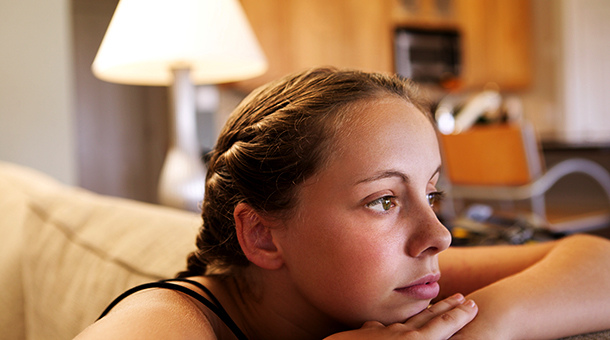The Medical Minute: The causes and signs of depression in children

Parents, teachers and others can find it hard to spot signs of depression and anxiety in children – and struggle with how they can help.
“Unfortunately, often there is not a straightforward answer for these often simply stated questions,” says Timothy Zeiger, a psychologist at Penn State Hershey Medical Center.
There are multiple theories as to what causes depressive and anxiety disorders.
“Such disorders can arise from a complex interworking of genetic influences, life experiences and the impact of stress on an individual,” Zeiger says.
In utero, as newborns and throughout life, we are exposed to stressors in our environment. These stressors have an impact on our global level of functioning. Coping is essentially one's ability to manage stressful situations.
Zeiger says children and adolescents who are depressed may report feelings of sadness, boredom, hopelessness, helplessness and irritability. Other symptoms can include:
- a loss of interest in activities they had enjoyed
- an overall general sense of negativity
- issues with self-image/esteem
- pessimism
Behavioral symptoms of depression can include:
- issues with eating
- difficulty sleeping
- agitation
- poor concentration
- low levels of energy
Children and adolescents who are anxious may display signs of excessive worrying. Additionally, they may experience symptoms such as inattention, irritability and various physical complaints (such as belly aches). They may begin to engage in avoidant behaviors to help separate themselves from facing the real or imagined fear.
As for ways to help, Zeiger says having open communication between the caretaker and the child is essential.
“I encourage caretakers not to be forceful and ask closed-ended questions such as ‘Are you happy?'” Zeiger says. “Try instead to ask open-ended questions such as ‘How does that make you feel?'”
He adds it is vital for the caretaker to be a good listener and to reflect back to the child how you think they may be thinking or feeling based on their conversation with you.
Finally, be supportive and encourage the child to face their fears, challenge their anxious or depressed thoughts and support even the smallest success – for example, by praising them for working on a difficult homework assignment.
Sometimes, professional help may be needed. When assessing the need to consult with a mental health professional, the caretaker should ask questions such as:
- Is the anxiety age and developmentally appropriate?
- Do the anxious/depressive symptoms impact the child's ability to function across settings?
- How long have the symptoms been present?
Zeiger says if there are immediate safety concerns, such as suicidal thoughts or behaviors, it is vital the child or adolescent be closely monitored by an adult until he or she can be evaluated by a mental health professional.
The Medical Minute is a weekly health news feature produced by Penn State Milton S. Hershey Medical Center. Articles feature the expertise of Penn State Hershey faculty physicians and staff, and are designed to offer timely, relevant health information of interest to a broad audience.
If you're having trouble accessing this content, or would like it in another format, please email Penn State Health Marketing & Communications.
